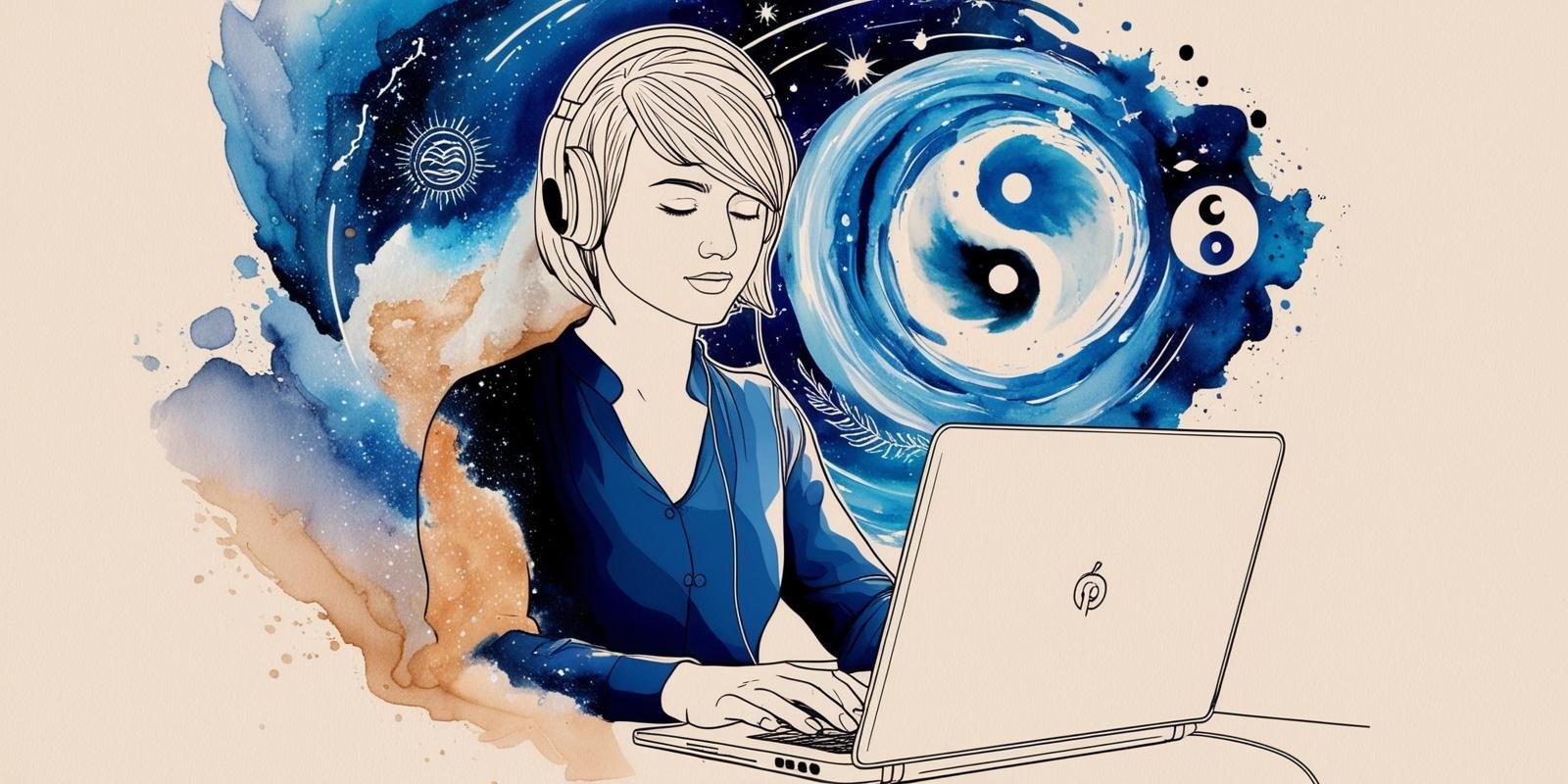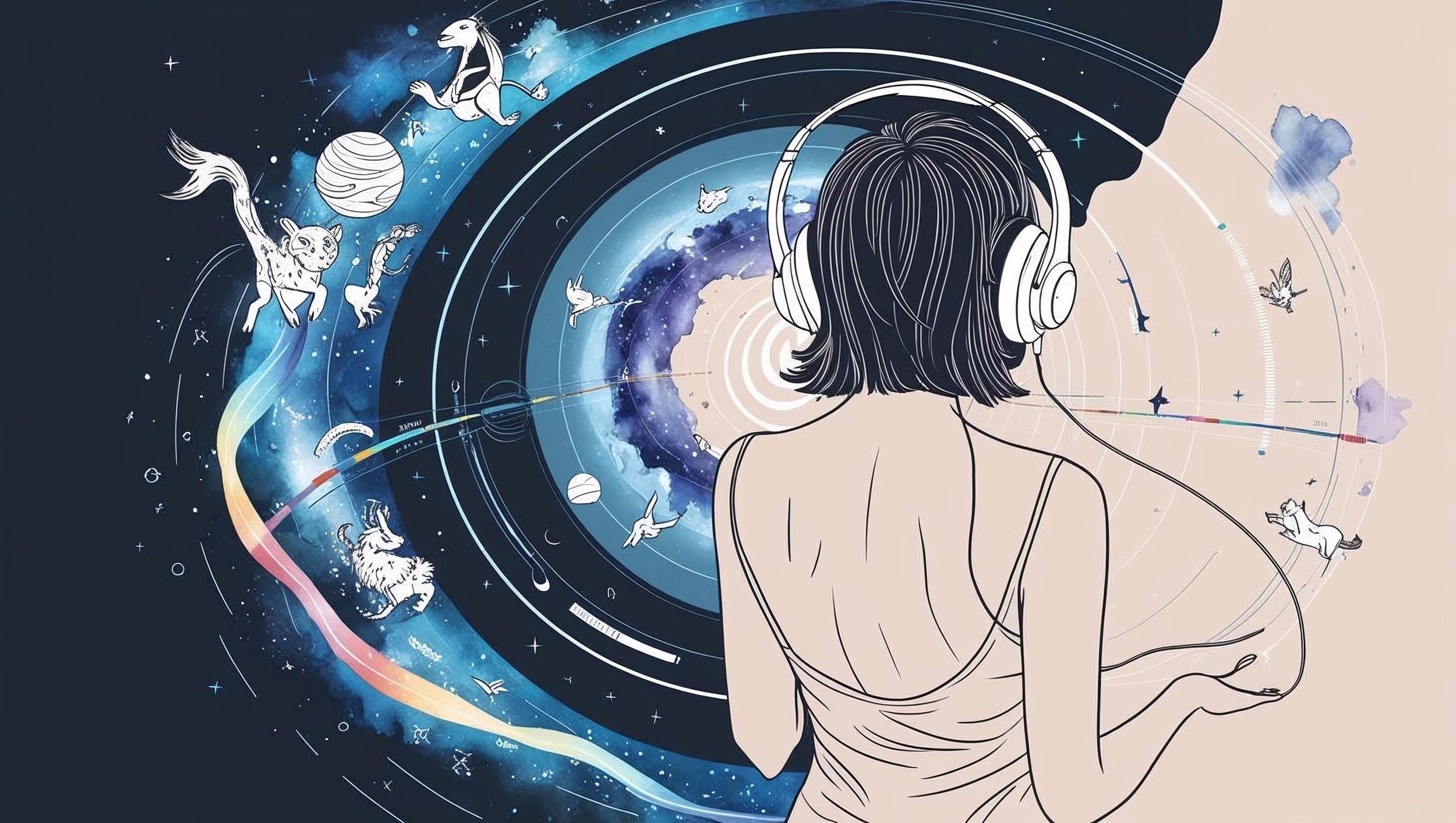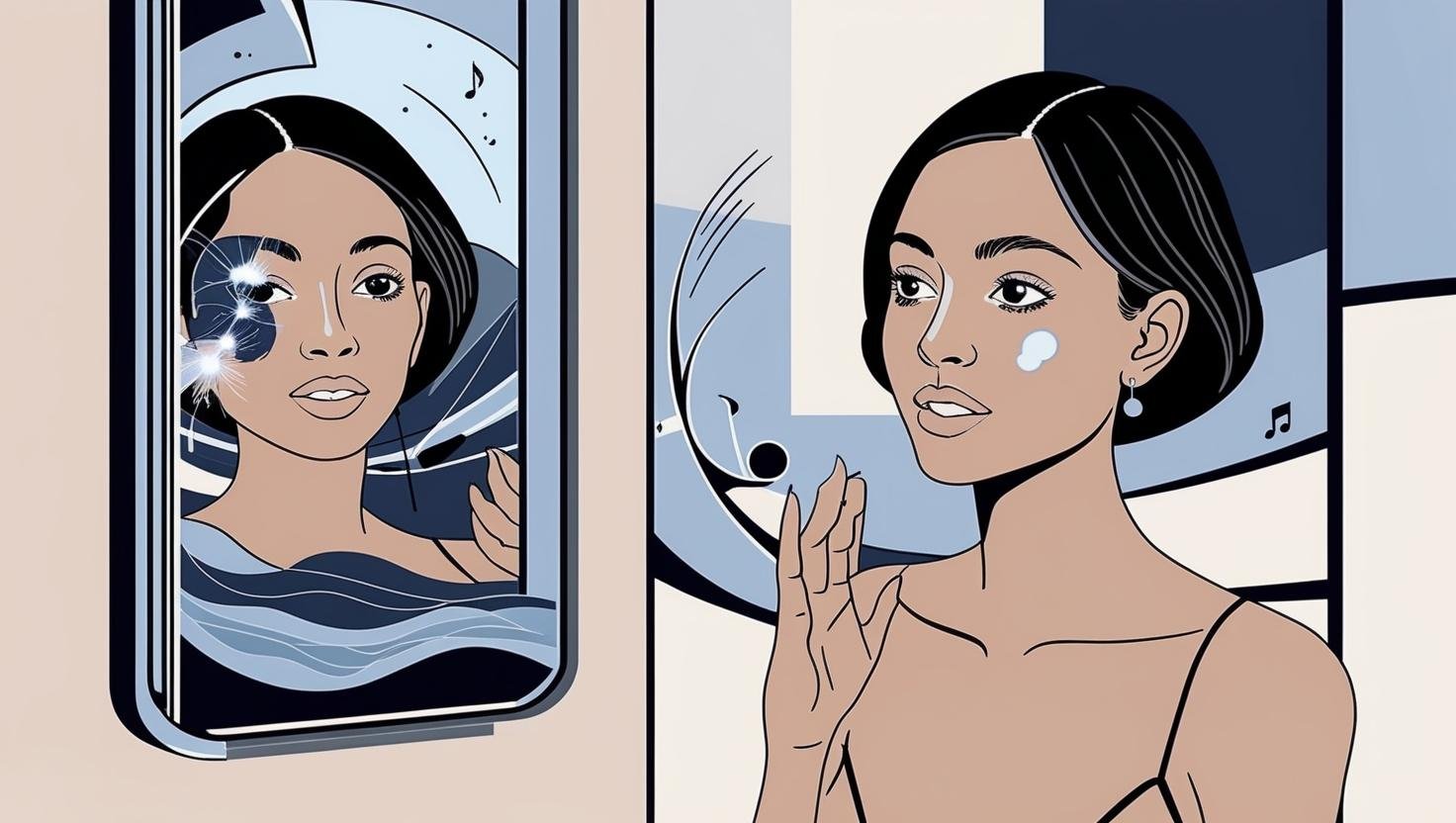confused by ai, business, and divine timing: what’s left for humans when ai can do everything?
Every morning I wake up to news about another industry transformed by AI.
AI agents replaced virtual assistants.
Customer service became automated.
Replit builds apps and websites in seconds.
In this world that is constantly changing, what does it mean to create meaningful work when artificial intelligence can handle tasks that once required years of human training?
I'm social media averse. The idea of building a "personal brand" or constantly posting content to feed algorithmic platforms makes me sad. Yet every business person I admire has an online platform.
So I keep wondering: if consciousness principles actually work the way Joe Dispenza describes, if we can literally think our way into new realities, is it possible to create a reality where I can build something meaningful in an Ai world without feeding the social media machine?
Can you succeed without turning your authentic self into content? Or am I just making excuses because performing for algorithms feels soul-crushing?
Welcome to another rabbit hole session.
Three connected dilemmas: my social media aversion, whether meaningful work can exist outside algorithmic platforms, and how to create value in an AI reality that's only getting more real.
the three-way brain debate
My internal debates:
The rational voice says: "You need a business plan. Pick something scalable. Marketing pays well. You have 7 years of experience doing that just go back."
The spiritual voice whispers: "Trust divine timing. Surrender the need to control. Your purpose will reveal itself."
The anxious voice screams: "Everyone else figured this out years ago. You're behind. Just pick anything profitable and build your following."
All three live in my head having heated debates.
I want to build something meaningful.
But meaningful work doesn't always pay the bills.
I've read enough about "follow your passion" to know it's privileged advice.
Money literally fixes money problems, and I need to acknowledge that reality.
Am I asking the wrong question?
Instead of "How do I monetize my purpose?" maybe it's "How can I help people without turning myself into content?"
But I have no idea what that looks like.
I wrote about this search for meaning and purpose before, but the questions have only gotten more complex since AI entered the conversation.
There's this pull to be useful somehow.
But I can't see the shape of it yet.
Maybe the helping happens in ways I can't plan or predict.
Maybe I won't know how until I'm actually doing it.
And here's where it gets meta.
Sometimes I wonder if all this questioning is just sophisticated procrastination.
Am I being thoughtful or am I being scared?
And then I question whether questioning my questioning is helpful.
The questioning is turtles all the way down.
when everything feels too messy, go back to first principles
When you have 47 browser tabs of conflicting advice open in your brain, close them all.
Here's what I know:
Trust what you can observe directly.
Every creator, framework, and spiritual teacher filters through someone else's experience.
What am I actually seeing?
AI advancing rapidly. People confused. I feel clearest when I write.
Those are facts.
Information without action is entertainment.
I can read every business book, but unless I'm testing something real, I'm just collecting concepts.
When everything feels urgent, nothing is.
The AI panic screams "figure it out NOW."
But urgent feelings aren't urgent reality.
I can take time to think this through.
Start with what you control today.
I can't control AI development or algorithmic demands.
I can control what I write, what I test, how I respond.
That's it.
If someone's selling certainty about an uncertain future, they're selling something. Anyone who claims to have THE answer about AI, business, or life path in 2025 lies or deludes themselves.
Uncertainty is honest right now.
When I apply these principles, the overwhelm dissolves.
I can't know the future, but I can observe now and take one small action.
This is where Simon Sinek's perspective becomes crucial.
what makes humans irreplaceable
The value isn’t just in the destination.
It’s in the journey.
TThe struggle of figuring things out is what makes us smarter, more resourceful, more human.
When you write a book, the real value isn't just the finished product.
It's that the process of writing makes you a different person.
You think differently. You solve problems differently. You see connections you couldn't see before.
AI can generate an output, but it can't give you the growth that comes from wrestling with the process.
There's something about the way a human recognizes another human that no algorithm can replicate.
It's in the pause before someone speaks when they're working up courage to tell you something true.
It's knowing that when your friend says "I'm fine," they're actually asking to be seen through the performance.
AI can process patterns in data.
Humans feel patterns in the spaces between words.
We recognize the weight someone carries in their voice.
The way they breathe when they're scared.
The specific quality of silence that means they're remembering something painful.
This isn't emotional intelligence as a skill to develop. It's presence as a practice of being fully here with what's actually happening, not what we think should be happening.
When my friend texts about relationship problems, I don't give advice from a database. I share recognition from having been there. When someone feels lost in their career, I can sit with that lostness because I know how it tastes.
We excel at seeing how everything connects to everything else. Your work stress connects to your relationship patterns. Your childhood wound shows up in your business decisions.
That's consciousness, not computation.
My best insights never come from trying. They surface when my mind wanders. The unexpected connections between seemingly random concepts. AI can't replicate what emerges from boredom, movement, and letting thoughts drift.
But here's what worries me: We're at risk of losing these skills. When AI handles the hard parts, we stop developing the muscles that make us human.
The ability to sit with discomfort.
To work through problems slowly.
To have conversations that don't go perfectly.
To struggle and grow stronger because of it.
Simon points out that human interaction is becoming a luxury service. When you call Delta's premium line, you get to talk to a person.
That's where we're headed.
Human connection as a premium experience.
Maybe this is actually good news for people like me who refuse to commodify connection through social media algorithms.
But here's the thing, despite knowing all this about human value, I still use AI constantly.
my actual relationship with ai
I love it and I’m terrified of it.
I’ll spend an hour asking Claude to help me work through an idea. It’s like having the world’s most patient thinking partner.
My current AI workflow:
Existential crisis
Brain dump 800-1200 words
Ask AI to become my editor “does this make sense?”
Write more to prove I can still think
Repeat
AI handles structure and clarity.
I handle meaning, authenticity, and existential dread.
But I’m conscious about not letting it do the thinking for me. The struggle of figuring things out is what makes me who I am.
I don’t want to outsource that.
what i’m actually building right now
So here’s where I am with all this AI confusion and questioning.
I don’t know if I’m writing for other people, to be honest. I mean, I hope if someone sharing my concerns reads this, at least they’ll think “huh, at least I’m not alone in this.”
When people ask what I do for work, I’ve started saying “I’m figuring it out.” The silence that follows tells me everything about how uncomfortable we are with not-knowing.
This is week 2 of my 26-week tiny experiment. (I joined the Ness Labs community, and part of joining was having some sort of accountability in lostness. Must publish 1 article + 1 newsletter weekly for 26 weeks)
My hypothesis: Writing publicly about my journey of questioning everything will create clarity.
Maybe uncertainty is my category of one. (kidding)
The reality is I’m throwing everything at the wall through writing and seeing what sticks.
Writing is my form of accountability. I don’t think that’s how I help people, but I don’t know what is yet.
But I am trusting that if I focus on growth and stay open to being useful, the way will become clear. (fingers crossed)
This pressure to figure it out feels especially intense when you're torn between building meaningful work and biological timing, but maybe that's exactly why I need to trust the process.
And somehow, the money piece will work itself out.
Will see. I’ll keep you guys posted.
Does anyone else wonder if they’re overthinking their way out of actually living?
Am I the only one who feels like I missed a manual for adulting?
PS: Want to get my rants in your inbox plus cool stuff I find? Join my newsletter.
references to learn more:
Books:
Podcasts:






